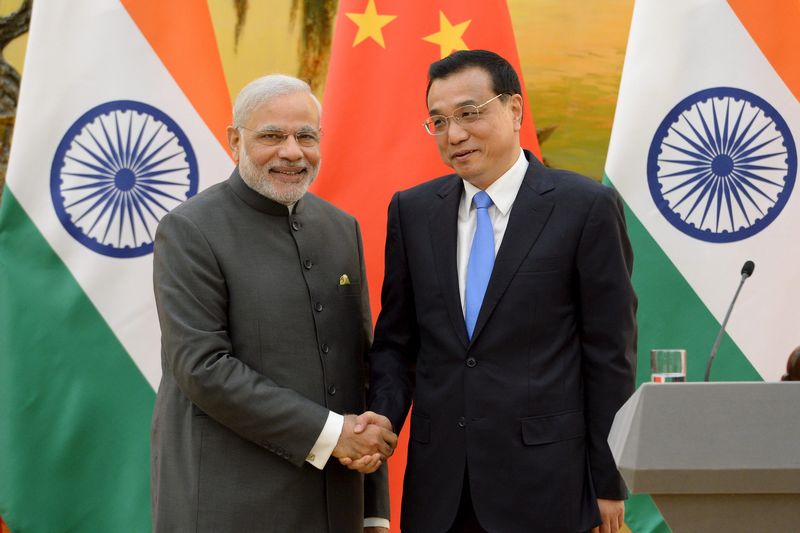By Ketki Saxena
Investing.com – A day after the Emergency NATO summit, and as President Biden travels to the Polish-Ukrainian border, the Western coalition’s actions on Russia have been dominating headlines.
But there’s another powerful partnership brewing in Asia. China and India - both nuclear nations, military powers and significant economies- are also discussing a common plan for the crisis in Ukraine.
China-India delegates meet to discuss aligned interests on Ukraine
Today in New Delhi, Chinese Foreign Minister Wang Yi, his Indian counterpart Subrahmanyam Jaishankar and Indian National Security Advisor Ajit Doval will be meeting to discuss united concerns regarding Russia-Ukraine. The meeting is especially significant as it marks the first summit between high-level delegates from the two countries in two years. Relations between the two neighbours have been exceptionally chilly since clashes on the Himalayan border in 2020 which killed 20 Indian and at least 4 Chinese soldiers.
According to the Global Times, a megaphone from the Beijing government, "China and India share similar positions on the Ukrainian crisis and an exchange of views between the two countries will serve as a stabilizer for the region despite the efforts of some external countries to stir up problems".
What will a China-India-Russia Partnership Entail?
A partnership between China and India could be military, but will primarily be economic. China and India, with their combined economic power, have already significantly undercut the key sanctions the West has imposed on Russia.
After Russia was excluded from international payment systems, China offered Russian banks the use of the Cross-Border Interbank Payment System (CIPS), which allows for Russian banks to settle with international clearing houses in the Onshore Yuan. Russia and India also secured a bilateral agreement allowing the two countries to continue trade despite sanctions, and a Rupee - Ruble trade agreement is expected to be ready in the coming days.
Russia and India have also amped up imports of Russian energy, mitigating the effect of the ban on Russian energy by the U.S, and today’s plan by the EU to increase reliance on the U.S. for LNG. The two countries have so far remained away from the raft of sanctions, and traders continue to take advantage of Russian oil and natural gas that are currently highly competitive against global counterparts.
Gazprom (MCX:GAZP) has recently also asked both Indian and Russian partners to settle payments in Euro, as it seeks to move away from its reliance on USD. Russia’s behemoth gas major also hopes to build a 50 billion cubic meter pipeline to China.
India in particular must work on a careful balancing act to maintain good relationships with the U.S., which is a far more significant trading partner than Russia. The U.S. is also aggressively courting India into its alliance, including an offer to replace Russian supplies to India. However close relations between Moscow and New Delhi have been carefully consolidated since the time of the Cold War.
